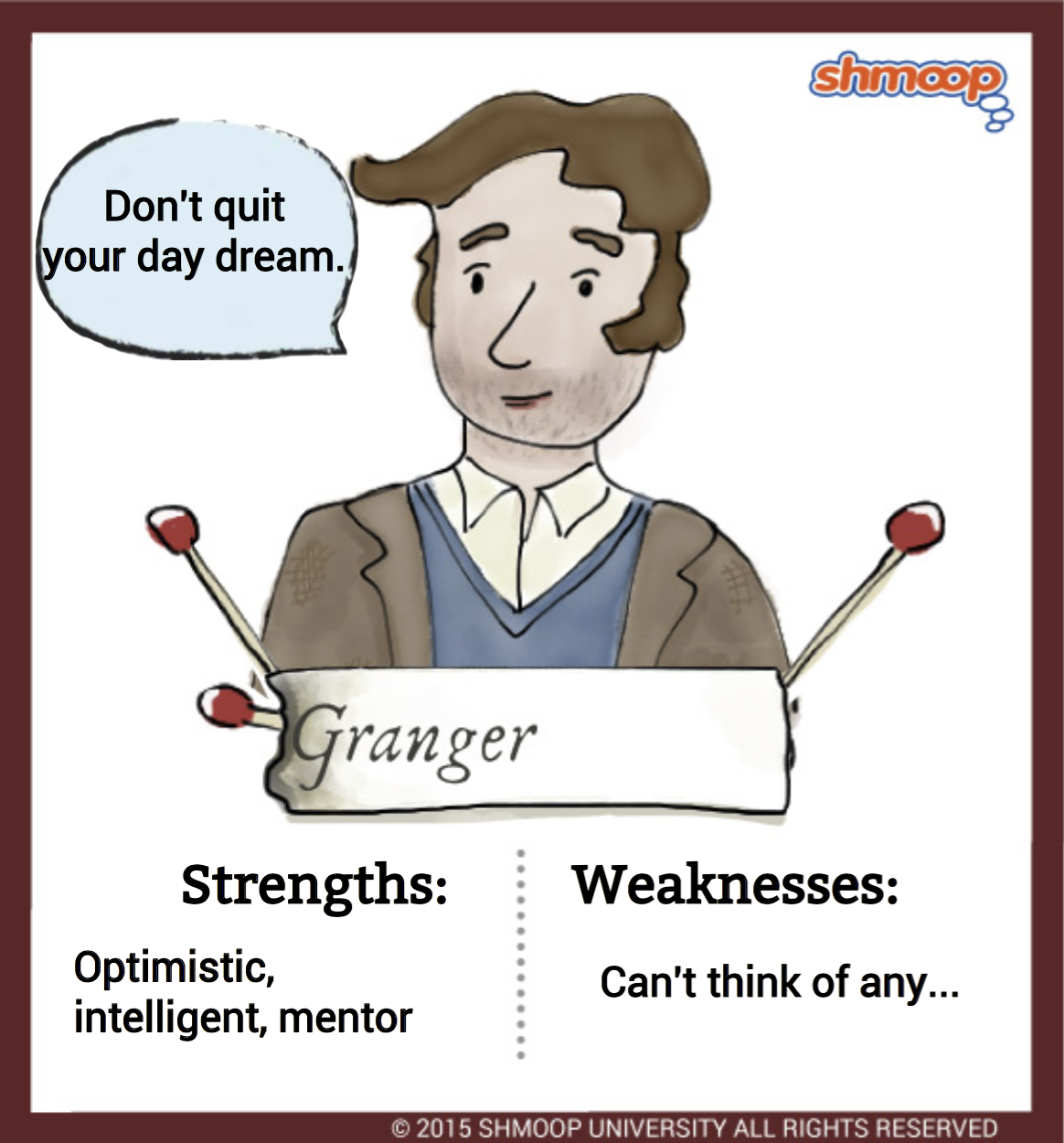Character Analysis

(Click the character infographic to download.)
Unlike Faber, Granger has made peace with his own rebellious inklings and devised a system to indulge them – all without getting killed (an impressive feat in this novel). He’s clearly spent some time thinking about the plight of mankind (or something less dramatic) and has decided this is the best way to go. It is Granger who divulges the novel’s Big Important Lesson about life being cyclic. Mankind builds up a body of knowledge, explains Granger, and then he destroys it and falls into a dark age. (See “What’s Up With the Ending?” for more.)
Man that is depressing. Because he’s the third and final mentor figure, and because his big speech is the hallmark of Part Three, Granger gets to set the final tone for the novel. Is the reader going to come away dismally depressed, or cheerfully optimistic? For one reason or another, Granger remains hopeful. “The wonderful thing about man,” says Granger, “[is that] he never gets so discouraged […] that he gives up. […] He knows very well it is important and worth the doing.” Granger’s words stay with Montag (and with the reader) even after the city is bombed to the ground.